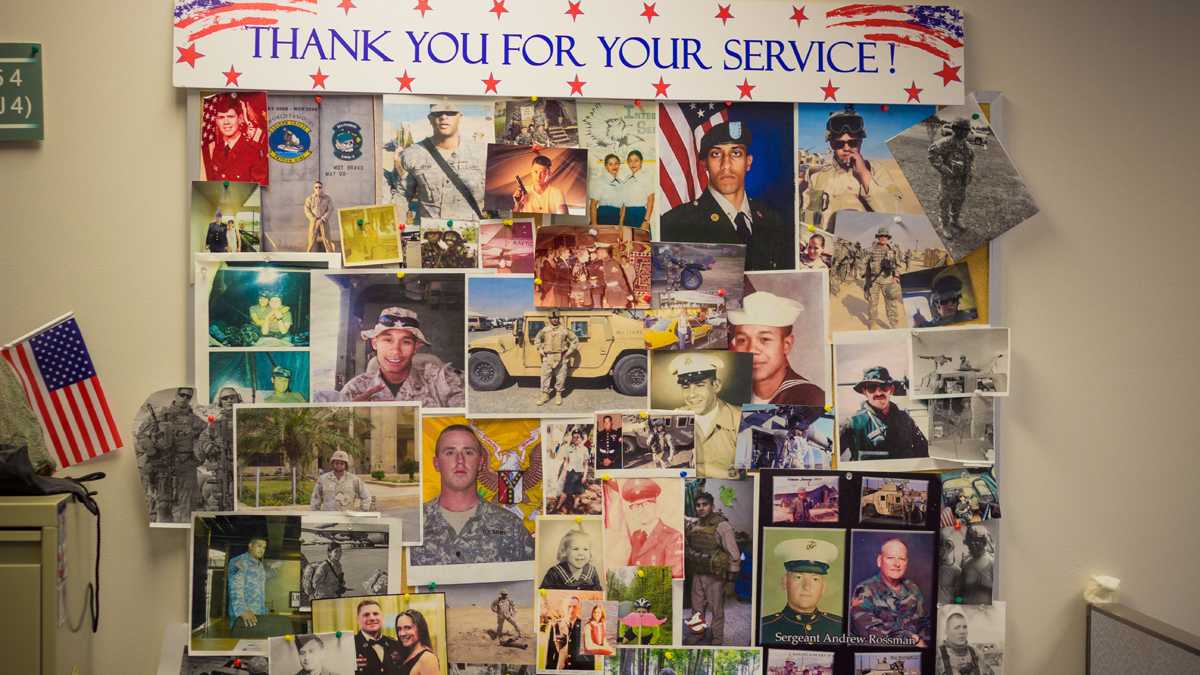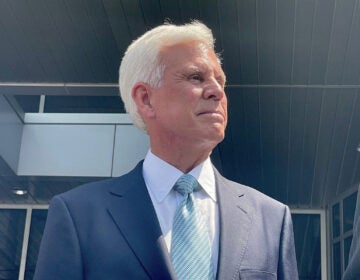After funding cuts, future of Rutgers-based helpline for vets on hold

Photos of veterans hang on the wall at the Vets4Warriors suicide prevention hotline center at Rutgers University Behavioral Health Services in Piscataway, New Jersey. (John Abbott/for NewsWorks)
A New Jersey-based support line for military veterans is in danger of taking its last call.
The Department of Defense has pulled its funding for Vets4Warriors, a peer-to-peer counseling hotline run by Rutgers University Behavioral Health Care that operates 24/7. The department will instead start using a call center through Military OneSource, which is not completely staffed by former military members.
“Veterans go in with the mindset that this is a comrade that they want to help,” said health care center president Christopher Kosseff of the Vets4Warriors counselors. “We hear that feedback over and over again, that this is different from anything [the callers] have ever had.”
Kosseff acknowledged a lack of research showing veterans prefer to speak with or receive better care from fellow veterans. But anecdotal evidence, he said, is overwhelming.
“If you listen to some of the conversations that our peers have with our service members and veterans, the connection is profound,” he said.
U.S. Sen. Cory Booker, D-New Jersey, recently sent several letters, co-signed by other members of the state’s congressional delegation, to Secretary of Defense Ash Carter asking that federal funding to the program be restored.
Last month, Gov. Chris Christie and the New Jersey Legislature set aside $2.5 million to bankroll the Vets4Warriors through next year. The program is seeking out other funding sources in case the state money runs out.
“We have several foundations who have expressed some interest in providing funding,” he said. “We have had a number of individuals make donations.”
Mark Graham, a retired U.S. Army major general and director of Vets4Warriors, said veterans worldwide would lose a valuable resource if the hotline were to shut down.
“All of our staff are veterans from all the different services and all the different conflicts, so we have a broad demographic that covers all areas,” said Graham.
“Our veteran [counselors] understand the military lifestyle.”
WHYY is your source for fact-based, in-depth journalism and information. As a nonprofit organization, we rely on financial support from readers like you. Please give today.




